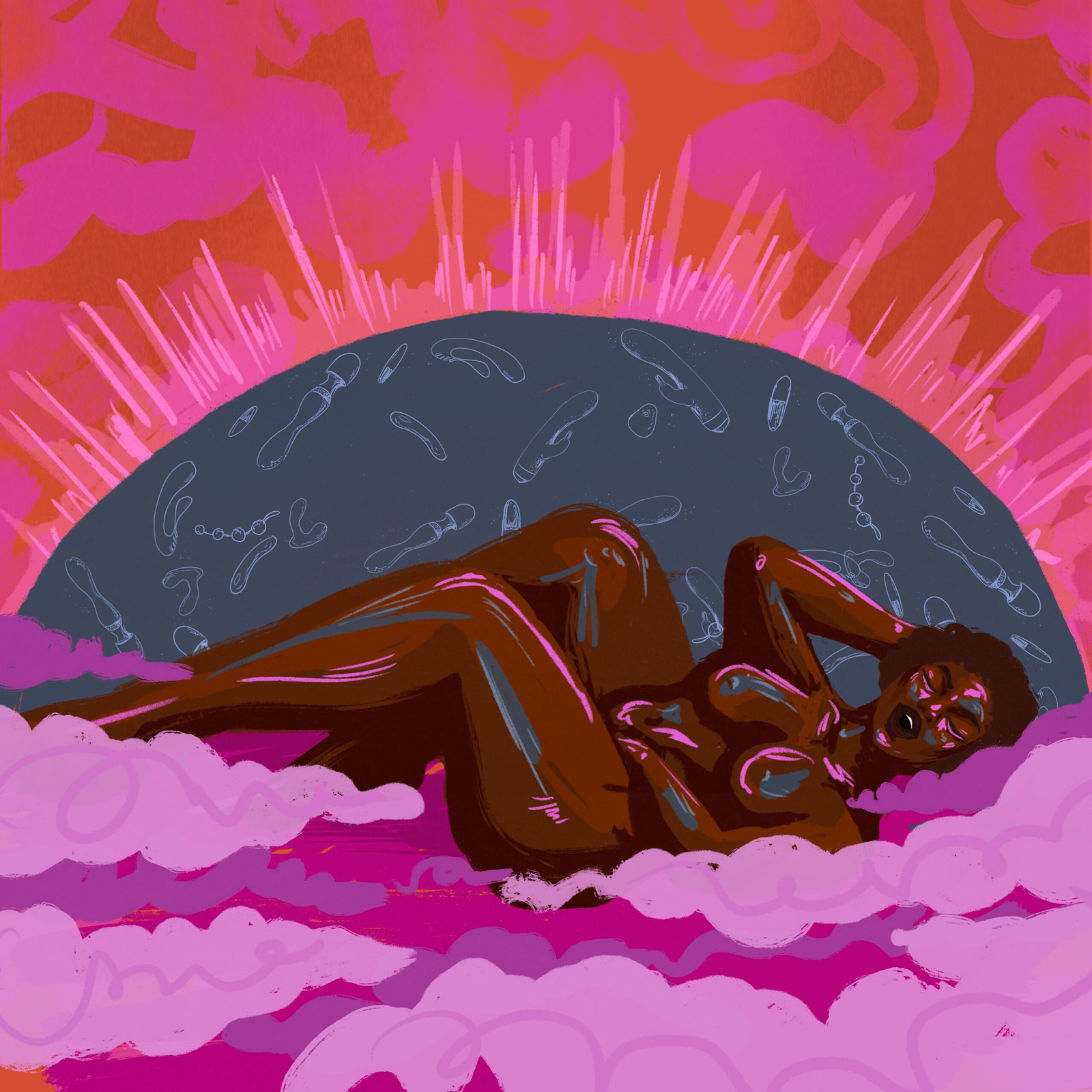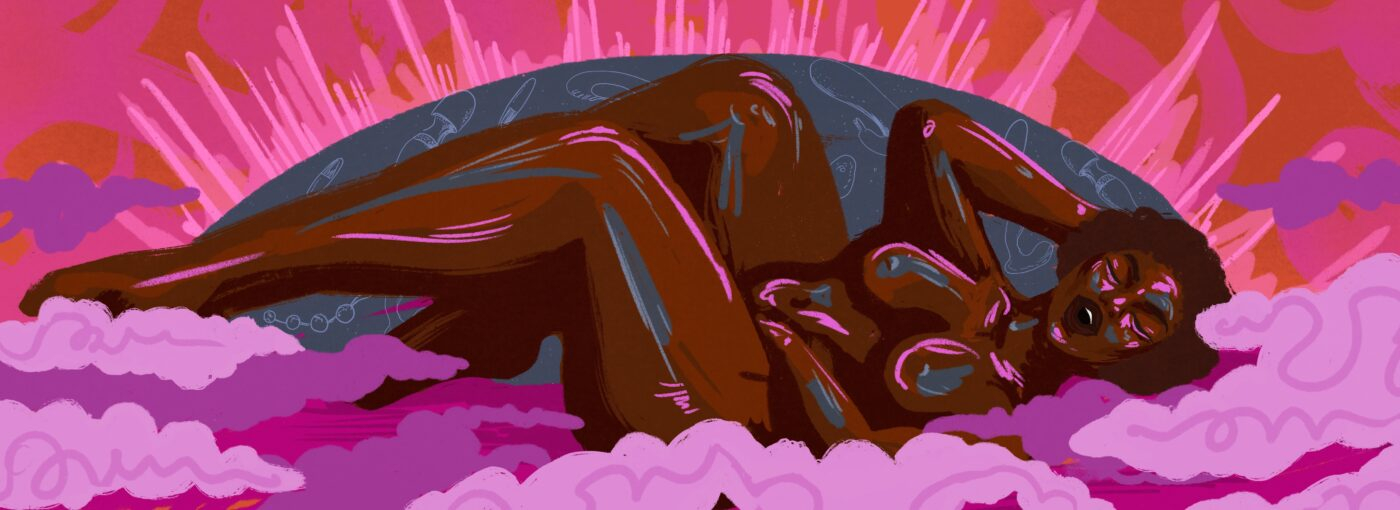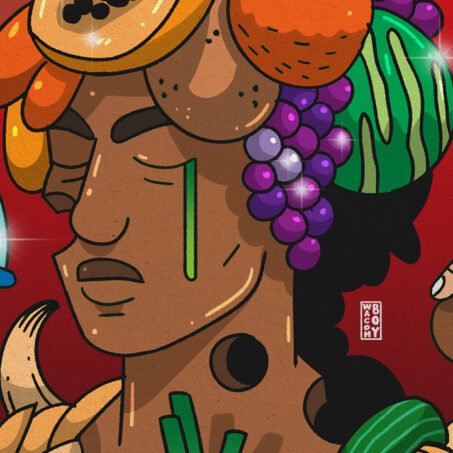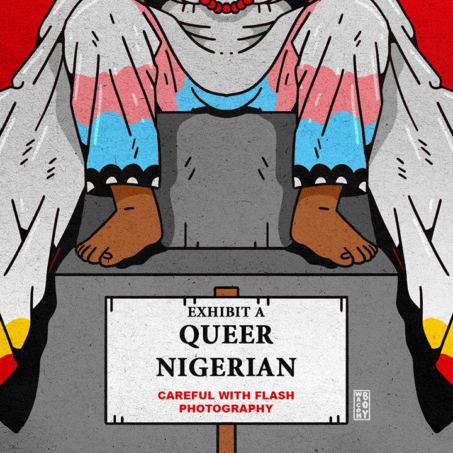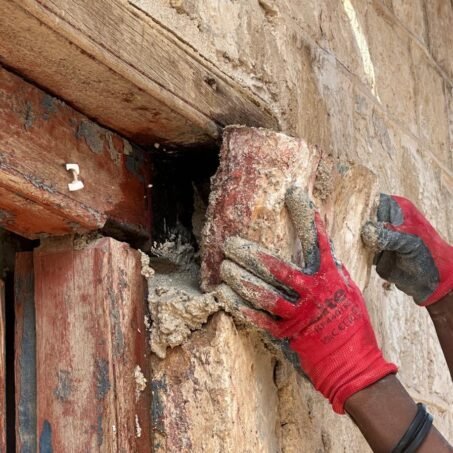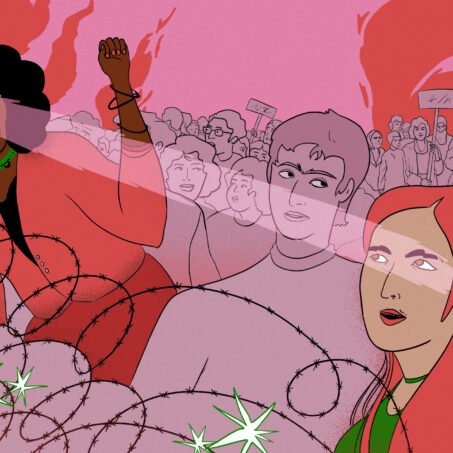A particular kind of silence surrounds women’s sexual pleasure in Nigeria. Rarely discussed unless in hushed tones, women share secrets gleaned from films or other friends, while outwardly adhering to the idea – compounded by culture, religion and tradition – that a Nigerian woman must remain quiet and naive when it comes to sex.
Eko ile and masturbation myths
“Marriage is honourable when the bed is undefiled.” This was a mantra in my house growing up and was a cornerstone of my Eko ile – the tradition of moral teaching which happens in the home. It was also the only time the subject of sex was ever openly breached. The intertwining of sex and marriage was so complete in my mind that I half expected to be handed a guide on my wedding night, finally initiated in to this secret world that was for wives only.
While ironically Nigeria is the world’s highest consumer of porn, the world of self-pleasure was something I was discouraged from at an early age.
In fact, I used to believe that I’d go blind if I masturbated. This is a common myth amongst Nigerian youth. When I was young, it made sense. The fact that a woman gets so much pleasure and her retinas give out. Other lies told to kids surrounding masturbation include that it causes hairy palms, infertility, mental illness, baldness and amazingly, STDs. And this is even before you investigate the idea that masturbation is linked to promiscuity, and women run the risk of being called ‘sluts’ and ‘whores’ if they engage in the activity.
I had to overcome all these ideas in order to masturbate for the first time. I had to let down all my walls. Touching myself felt like an abomination – but I pushed against every wandering thought and focused on pleasing myself. This was me trying to know my body and the magic it was capable of. I was riling with tension and I needed to let it out. It was a discovery, one I am always happy I made.
Stopping the cycle of shame
After embarking on this journey myself, I wanted other Nigerian women to take control of their sexual pleasure. I wanted to stop the cycle of silence. And the first step towards this is talking about it: so I set out to interview some of the women around me.
Miss Eni* started masturbating at the age of 20, following a bad break-up with her former partner. “I saw a woman doing it in a movie and I was intrigued; I wanted to know what she was doing to herself,” she told me when we met up for a coffee. “So I read books about it, I started reintroducing myself to my vulva, labias and vagina. I had to shut out the shame and guilt.”
She had a similar upbringing to me. “We are Christians and such topics were just not breached in my household. I was taught women should be virtuous and enduring. Sex was rarely a topic associated with a woman unless she was the degenerate kind.”
Fola, a student, is currently trying to find new meanings and truth to what she was taught while growing up. “I used to see women who even dressed extravagantly as sinners. It was just the way it was. So when my first boyfriend told me to touch myself, and said he’d like to watch, I just couldn’t. I was overwhelmed by my parents’ voices. It was terrible.”
Additionally, she says, “It’s hard to comprehend the damage this kind of thinking does. I used to be so scared of touching myself, even accidentally, that I didn’t wash properly in the shower.”
But it’s not all shrouded in shame. Another source, Mrs Bada, tells me that masturbation has really helped her sex life with her husband. “He teases me because I know a lot about my body, but he likes it. It is nice when you are having sex and you know the exact spot you want to be touched, how you’ll reach orgasm and have a fulfilling sex life. I’ve touched myself since I was 18; when bathing, when watching a sensual movie, even when cooking. It is my body, so why not?” she says.
The attitude of pro-female masturbation from men like Mr Bada is not normal in this part of the world. You’re supposed to be brand new, with no previous sexual encounters.
Mrs Bada didn’t worry too much about this male presupposition. She tells me that she realised early on that the source of female guilt surrounding masturbation came from religious texts and traditional folklore. “Knowing this made it easy for me to accept my desires, and to decide to live life on my own terms” she says – “despite what my upbringing and society tried to engrain in me.”
Masturbation for the nation
As Mrs Bada shows us, masturbation shame can be unlearned, and sex positivity is truly synonymous with self love. I decided to take this liberation journey one step further and start my own sex toy business. I had started using a sex toy myself a few years ago, and I can still remember my first experience. It was beautiful, I could press buttons and change the vibrations. I orgasmed so many times that night, it was a revelation.
During lockdown, women were more sex starved than normal, and ultimately I just wanted to help my friends get by. I bought the toys wholesale and I was so excited to pick them up from the post office. Enduring social stigma made it hard to market the sex toys successfully, but it’s not a business venture I plan on giving up on.
I wasn’t surprised, as the stigma surrounding sex toys is something I came across a lot while at university. One such story is Aina’s, who is from the Northern part of the country. Being in the South-West was her first taste of freedom. Culturally, the people in the South-Western part of Nigeria are more open-minded towards sex and sexuality than those in the North. This is due to the higher number of religious extremists in the North, this stifles most women. The women in these parts are sometimes made a pariah if they dress, act or talk in a manner that points to them being sexually active outside the institution of marriage.
Aina shyly tells me that the first experience of using a sex toy was after her boyfriend got it for her. “I didn’t want to get it for myself. I am Muslim, and such things are considered haram. But I enjoyed the dildo, I was using it non-stop, it eventually gave out. I was sad about that, but I haven’t gotten a new one yet, since I ended things with the guy that got it for me.”
The actions of Aina’s boyfriend is proof that some young people in Nigeria are working towards changing sexual narratives. A phrase that some Nigerian youth use when talking about sex is: “don’t waste sin”. The thinking here being, that if you’re going to sin by having pre-marital sex, why not make it the most pleasurable experience possible for both parties?
I loved speaking to women about their sexual pleasure, and the more I did the more I realised that attitudes are changing, albeit slowly. I hope that this article, and conversations like these, become even more commonplace so that when it comes to a woman’s wedding night she won’t feel like she needs a handbook – she’ll have the whole thing memorised.
*names have been changed

Join our mailing list
Sign up for shado's picks of the week! Dropping in your inbox every Friday, we share news from inside shado + out, plus job listings, event recommendations and actions ✊
Sign up for shado's picks of the week! Dropping in your inbox every Friday, we share news from inside shado + out, plus job listings, event recommendations and actions ✊
What can you do?
To get other women’s takes on this important topic, read books such as:
- Nearly All The Men In Lagos Are Mad by Damilare Kuku
- The Sex Lives of African Women by Nana Darkoa Sekyiamah
- She Called Me Woman by Azeenarh Mohammed
And articles like:
- Nigeria’s Bedroom Revolution by Bola Mosuro
- Masturbation: Sex For One by Chioma Obinna
- 5 Nigerian Women Talk About The Bliss of Masturbation by PulseNews
You can also listen to podcasts such as:
- The Olori Coitus Podcast by Yeside Olayinka-Agbola
- Talk Sex With Sugar by Oluwapelumi Alesinloye-King
- Women Talk Sex by Pulse Podcast Network
